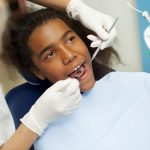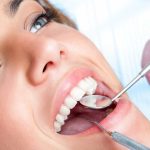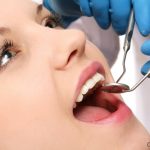When to Brush Teeth After Wisdom Teeth Removal: Tips for a Speedy Recovery
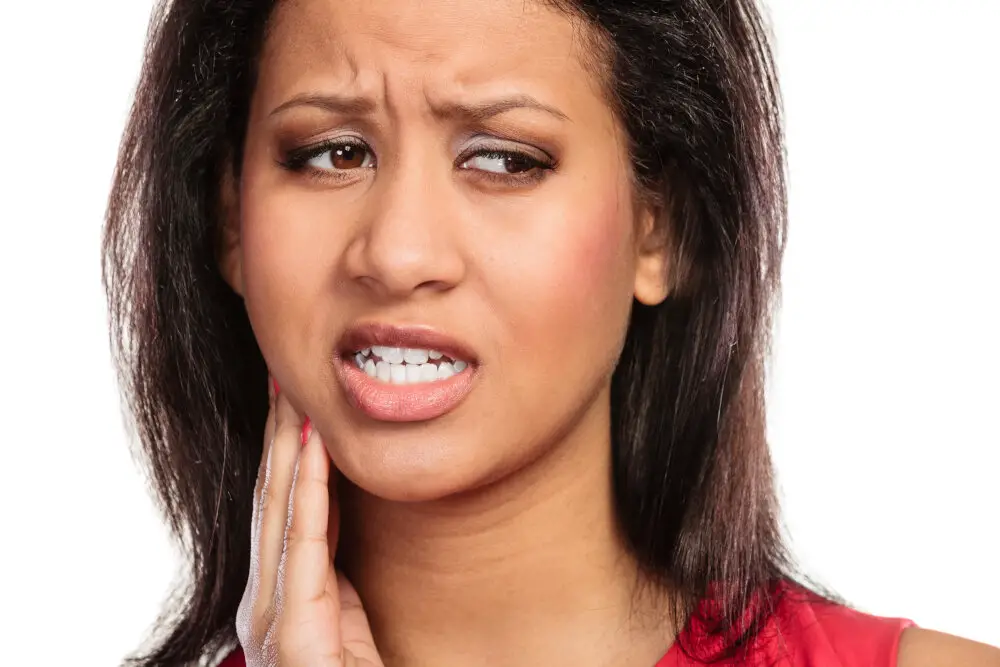
Wisdom teeth removal is a common dental procedure that many people undergo. The wisdom teeth, also known as third molars, are the last set of teeth to emerge, typically occurring between the ages of 17 and 25. In some cases, these teeth can cause pain, infection, or other dental issues, leading to the need for removal. While the procedure itself is relatively straightforward, recovery can be a bit more complicated. One question that many people have after their wisdom teeth removal is when they should brush their teeth. In this article, we’ll explore some tips for a speedy recovery and answer the question of when to brush teeth after wisdom teeth removal. Proper care after wisdom teeth removal is essential to ensure a speedy recovery. The first 24 hours after the procedure are the most critical, and it’s essential to follow the aftercare instructions provided by your dentist or oral surgeon. This may include using ice packs to reduce swelling, taking pain medication as prescribed, and avoiding certain foods and activities. It’s also important to keep your mouth clean to prevent infection, but knowing when to brush your teeth can be tricky. In the next section, we’ll discuss some tips for caring for your mouth after wisdom teeth removal, including when and how to brush your teeth.
Wisdom teeth, also known as third molars, are the last set of teeth to emerge in the back of the mouth, usually between the ages of 17 and 25. However, due to the lack of space in the jaw, they often grow in an awkward angle causing pain, infection, and damage to the surrounding teeth. In such cases, dentists recommend wisdom teeth removal, a surgical procedure in which the teeth are extracted using local or general anesthesia. The recovery period typically lasts around a week, during which patients are advised to follow a set of guidelines to ensure proper healing and minimize the risk of complications. These include avoiding hard or crunchy foods, rinsing the mouth with saltwater, and refraining from brushing the surgical site for the first few days.
Proper dental care is essential for maintaining healthy teeth and gums. It includes daily brushing and flossing, regular dental check-ups, and a balanced diet. Neglecting dental care can lead to a variety of oral health problems, such as tooth decay, gum disease, and bad breath. In addition, poor dental hygiene can affect your overall health, as bacteria from the mouth can spread to other parts of the body and contribute to systemic health issues. Therefore, it is important to prioritize dental care and follow recommended practices, such as brushing after wisdom teeth removal to prevent infection and promote speedy recovery. By taking care of your oral health, you can ensure a beautiful smile and a healthy body.
Why is Brushing Teeth After Wisdom Teeth Removal Important?
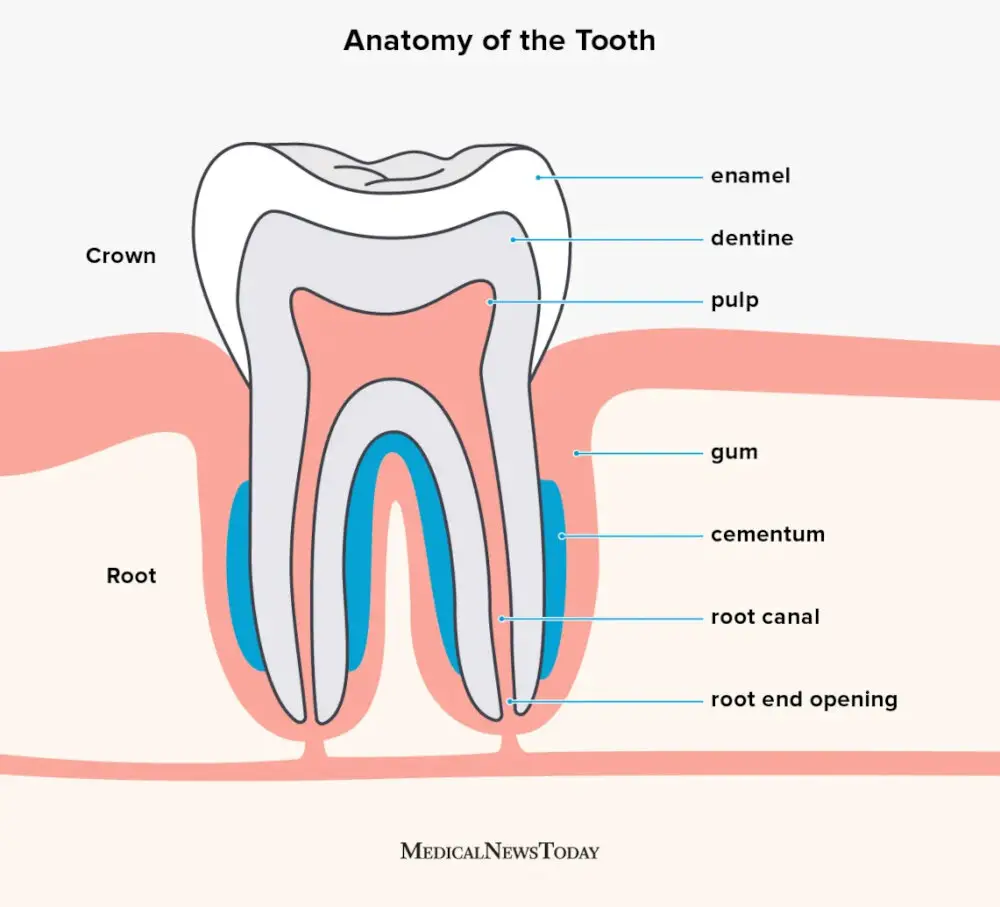
After undergoing wisdom teeth removal surgery, it is essential to take good care of your oral hygiene. Brushing your teeth is one of the most crucial steps to ensure a smooth and speedy recovery. Not only does brushing remove food particles and debris from your mouth, but it also helps to keep your mouth clean and prevent infection. Brushing your teeth after wisdom teeth removal is particularly important because the surgery site is vulnerable to bacteria and infection. When brushing your teeth, be gentle and avoid the surgical area to prevent any irritation, but ensure that you still brush the rest of your teeth and tongue. Failing to brush your teeth after wisdom teeth removal can lead to various complications such as infections, bleeding, and dry sockets. Dry sockets occur when the blood clot that forms in the socket where the wisdom teeth were removed breaks down, exposing the underlying bone and nerves. This condition can be extremely painful and require additional treatment. By brushing your teeth after wisdom teeth removal, you remove bacteria and particles that may lead to infection or other complications. It is also essential to follow your dentist’s post-surgery instructions to ensure a speedy and safe recovery. By taking care of your oral hygiene, you can prevent further complications and ensure a smooth recovery.
After wisdom teeth removal, potential complications and risks can arise if proper care is not taken. Dry socket is one of the most common complications, which occurs when the blood clot that forms in the socket where the tooth was removed becomes dislodged, exposing the bone and nerves. This can cause severe pain and delay the healing process. Infection is another risk, which can occur if bacteria enter the open wound. Symptoms of infection include fever, swelling, and difficulty opening the mouth. It is important to follow the post-operative instructions given by the dentist or oral surgeon and to contact them immediately if any complications or risks arise.
Oral hygiene is an essential aspect of maintaining good dental health. Brushing and flossing regularly can help prevent tooth decay, gum disease, and bad breath. After wisdom teeth removal, maintaining good oral hygiene becomes even more critical to prevent complications and promote a speedy recovery. Failure to properly care for the teeth and gums after surgery can lead to infection, bleeding, and delayed healing. Therefore, it is crucial to follow the dentist’s instructions and brush teeth gently, avoiding the surgical site for the first few days. Using a saltwater rinse can also help keep the mouth clean and promote healing. A consistent oral hygiene routine can ensure that your teeth and gums remain healthy and free from complications.
When Should You Start Brushing Your Teeth After Wisdom Teeth Removal?
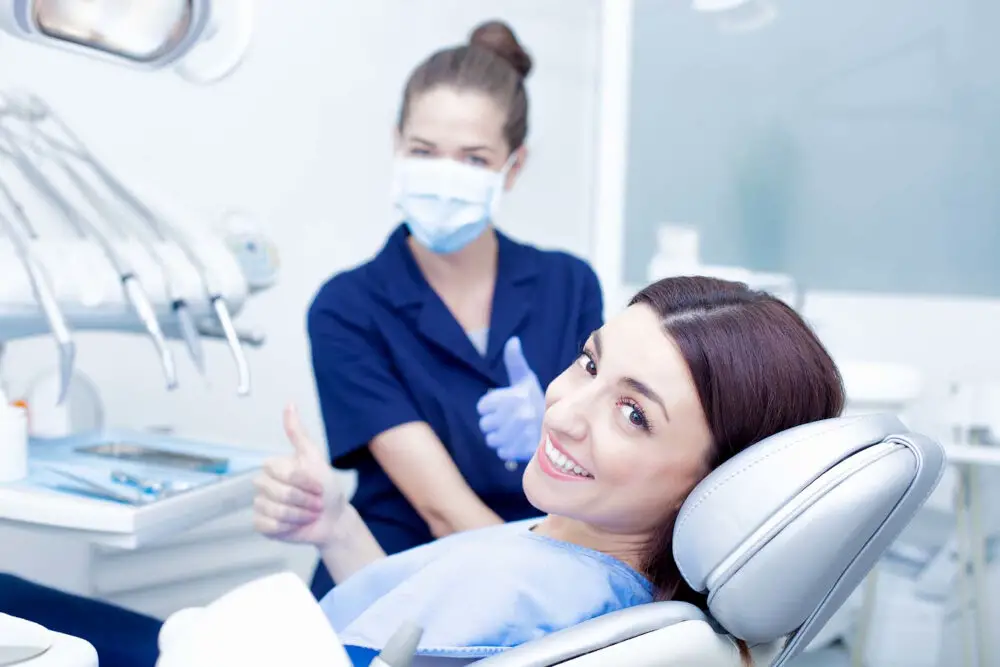
After wisdom teeth removal, maintaining proper oral hygiene is crucial for a speedy recovery. However, it is important to know when to start brushing your teeth after the procedure. Dentists recommend waiting at least 24 hours before brushing your teeth after wisdom teeth removal. This allows the blood clot to form and prevents it from being dislodged, which can lead to a painful condition called dry socket. Dry socket occurs when the blood clot that forms in the socket where the tooth was removed dissolves or dislodges, exposing the bone and nerves. This can cause severe pain and delay the healing process. Therefore, it is essential to follow the dentist’s instructions and wait at least 24 hours before brushing your teeth. When you are ready to start brushing your teeth after wisdom teeth removal, it is important to keep in mind some tips to avoid damaging the surgical site. You should use a soft-bristled toothbrush and gently brush the teeth and gums around the surgical site. Avoid brushing the surgical site directly, and don’t use mouthwash or toothpaste that contains alcohol, as it can irritate the area. Instead, rinse your mouth with a saltwater solution, which can help reduce swelling and promote healing. By taking care of your oral hygiene and following the dentist’s instructions, you can ensure a speedy recovery after wisdom teeth removal.
The healing process after wisdom teeth removal is a gradual one that involves several stages. In the first few hours after the surgery, the body will begin to form a blood clot at the site of the extraction. This clot will protect the wound and allow it to heal. Over the next few days, the body will begin to produce new tissue, and the wound will slowly close. During this time, it is important to avoid touching the wound, rinsing your mouth too vigorously, or using straws, as these actions can dislodge the blood clot and slow down the healing process. It can take up to two weeks for the wound to fully heal, and during this time, it is important to follow your dentist’s instructions closely to ensure a speedy and successful recovery.
Dentists and oral surgeons have several recommendations to ensure a speedy recovery after wisdom teeth removal. Firstly, they advise patients to bite down on a gauze pad for at least 30-45 minutes after the procedure to control bleeding. Secondly, it is recommended to avoid smoking or using a straw for the first 24-48 hours to avoid dislodging the blood clot. Thirdly, patients should wait at least 24 hours before brushing their teeth to avoid disturbing the extraction site. After the first 24 hours, gentle brushing is recommended to keep the mouth clean and promote healing. Lastly, patients should avoid hard, crunchy, or spicy foods for the first few days after surgery and stick to soft and liquid diets to avoid irritating the extraction site. By following these recommendations, patients can ensure a speedy and successful recovery after wisdom teeth removal.
Tips for Brushing Teeth After Wisdom Teeth Removal
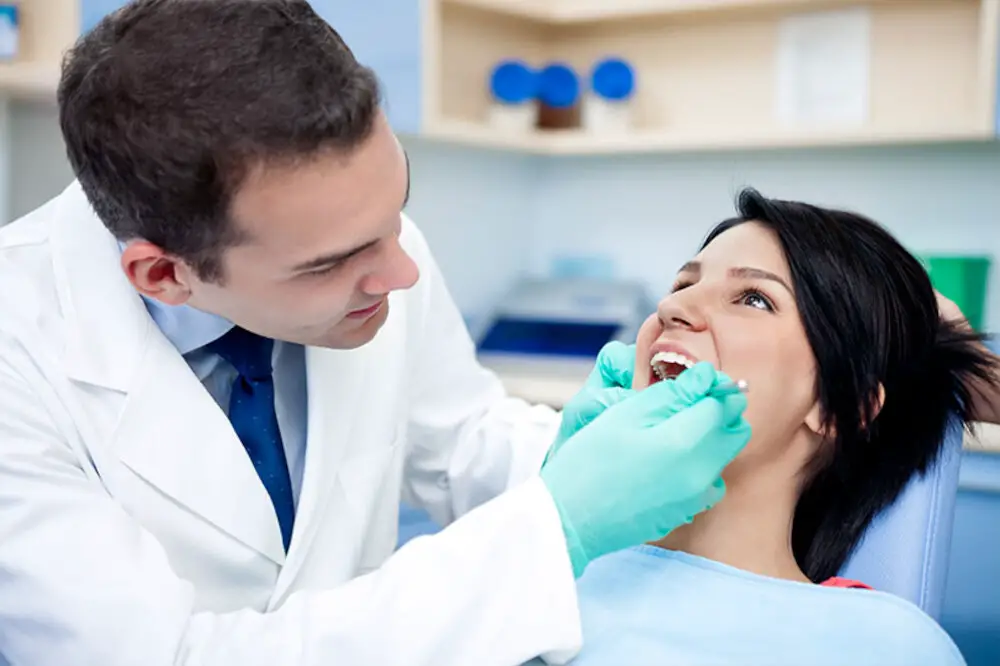
After wisdom teeth removal, it is essential to take proper care of your oral hygiene to avoid any infections or complications. Brushing your teeth is crucial for maintaining good oral health, but it can be a little tricky after the removal of wisdom teeth. Here are some tips that you can follow to brush your teeth safely and effectively after wisdom teeth removal. Firstly, wait for at least 24 hours after the surgery before brushing your teeth. Your mouth needs time to heal, and brushing too soon can cause bleeding or dislodge the blood clot that forms in the extraction site, leading to dry socket. Once you start brushing, use a soft-bristled toothbrush and be gentle around the extraction site. Avoid brushing too hard or vigorously, as it can irritate the wound and delay the healing process. You can also use a saltwater rinse to help keep the area clean and reduce swelling. Be sure to follow your dentist’s instructions on when and how to rinse. By following these tips, you can ensure a speedy and comfortable recovery after wisdom teeth removal.
After wisdom teeth removal, it’s essential to take proper care of your oral health to ensure a speedy recovery. One way to do this is by using recommended tools and products. Firstly, a soft-bristled toothbrush is a must-have as it prevents damaging the sensitive gum tissue. Secondly, an antibacterial mouthwash helps to reduce the risk of infection and promote healing. Thirdly, a saline solution can be used to rinse the mouth and prevent the formation of dry sockets. Lastly, a cold compress can be applied to the cheek to reduce swelling and pain. These tools and products are easy to find and can make a significant difference in the recovery process.
Proper technique for brushing is crucial for maintaining good oral hygiene, especially after wisdom teeth removal. Firstly, choose a soft-bristled toothbrush and use a fluoride toothpaste. Begin by placing the toothbrush at a 45-degree angle to the gums and gently brush in circular motions. Make sure to brush all surfaces of the teeth, including the front, back, and chewing surfaces. Pay special attention to the area around the extraction site, but be gentle to avoid disturbing the healing process. Brush for at least two minutes, twice a day, and don’t forget to floss daily to remove any food particles stuck between the teeth. Finally, rinse your mouth with an antiseptic mouthwash to kill any remaining bacteria and freshen your breath. By following these simple steps, you can ensure a speedy and healthy recovery after wisdom teeth removal.
After wisdom teeth removal, it is crucial to take proper precautions to ensure a speedy recovery. One of the essential precautions is to avoid smoking, as it can lead to dry sockets and slow down the healing process. Additionally, it is advisable to avoid using straws and consuming hot or spicy foods as they can irritate the extraction site. It is essential to brush your teeth gently with a soft-bristled toothbrush, being careful not to touch the extraction site. Rinsing your mouth gently with saltwater can also help reduce swelling and promote healing. Finally, it is crucial to follow your dentist’s instructions carefully, take any prescribed medications on time, and attend all follow-up appointments to ensure a smooth and successful recovery.
Foods and Beverages to Avoid After Wisdom Teeth Removal
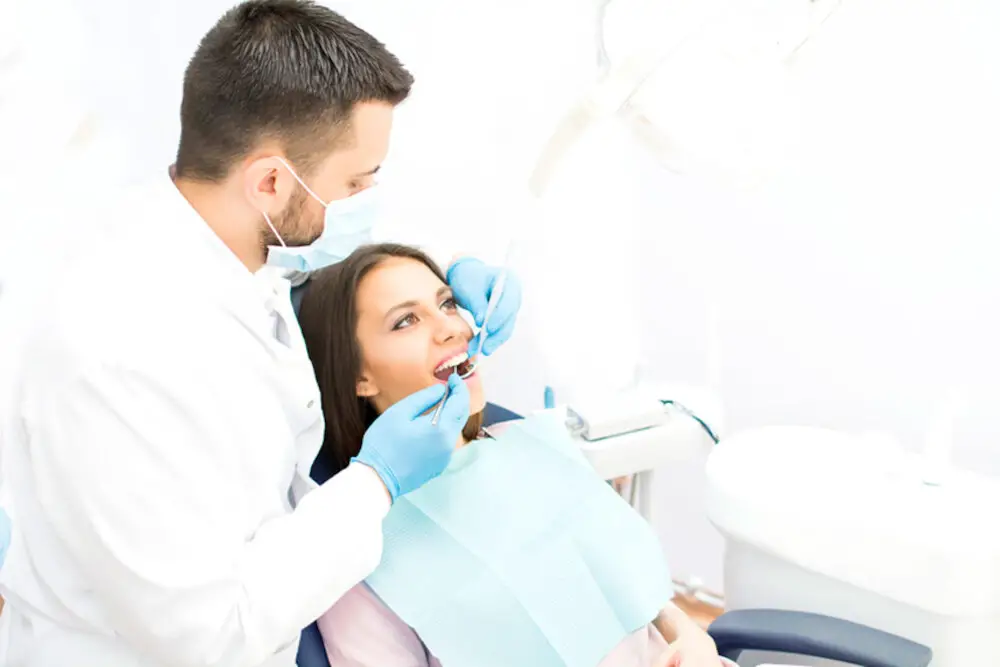
After wisdom teeth removal, it is essential to avoid certain foods and beverages to prevent any complications that may occur during the healing process. Foods that are hard, crunchy, or require excessive chewing should be avoided as they can cause pain and discomfort. Examples of such foods include nuts, chips, popcorn, and hard candies. Additionally, spicy and acidic foods should also be avoided as they may irritate the surgical site and delay the healing process. It is recommended to stick to soft, bland foods such as yogurt, scrambled eggs, mashed potatoes, and soups during the first few days after surgery. Drinking plenty of water is also vital to stay hydrated and promote healing. Beverages such as alcohol, carbonated drinks, and hot drinks should be avoided during the first few days after wisdom teeth removal. Alcohol can interfere with the healing process and cause dry socket, which is a painful condition that occurs when the blood clot that forms in the socket is dislodged. Carbonated drinks can cause discomfort and bloating, and hot drinks can increase swelling and bleeding at the surgical site. Instead, drinking cold and lukewarm beverages such as water, juice, and smoothies can help soothe the mouth and reduce swelling. It is important to avoid using a straw when drinking as it can dislodge the blood clot and delay the healing process.
After wisdom teeth removal, it is important to avoid certain foods and beverages to promote a speedy recovery. Foods that are hard, crunchy or sticky should be avoided as they can irritate the surgical site and cause discomfort. Some examples include popcorn, nuts, chips, and candy. In addition, acidic or spicy foods can also aggravate the site and delay healing. Beverages to avoid include alcohol, hot drinks, and carbonated drinks, as they can also cause irritation and discomfort. It is best to stick to soft, cool, and bland foods such as yogurt, smoothies, and mashed potatoes for the first few days after surgery.
The removal of wisdom teeth can be a painful and uncomfortable experience, but taking proper care of your mouth can lead to a speedy recovery. It’s recommended to wait at least 24 hours before brushing your teeth to allow the blood clot to form and prevent dry socket. After 24 hours, gentle brushing and rinsing with warm salt water can help keep the area clean and promote healing. Avoid smoking, drinking alcohol or using straws, as these can dislodge the blood clot and delay healing. Eating soft foods and staying hydrated are also important during the recovery period. By following these tips, you can ensure a smooth and quick recovery after wisdom teeth removal.
Proper dental care is crucial for a speedy recovery after wisdom teeth removal. It is essential to keep the mouth clean and free of bacteria to prevent infection and promote healing. Failure to maintain good oral hygiene can lead to complications such as dry socket, which can be excruciatingly painful. Brushing your teeth gently and rinsing your mouth with salt water can help control inflammation and reduce the risk of infection. It is also important to avoid smoking, using straws, and eating hard or crunchy foods for a few days after the surgery. By following these tips, you can ensure a smooth recovery process and avoid any unnecessary discomfort or complications.
Conclusion
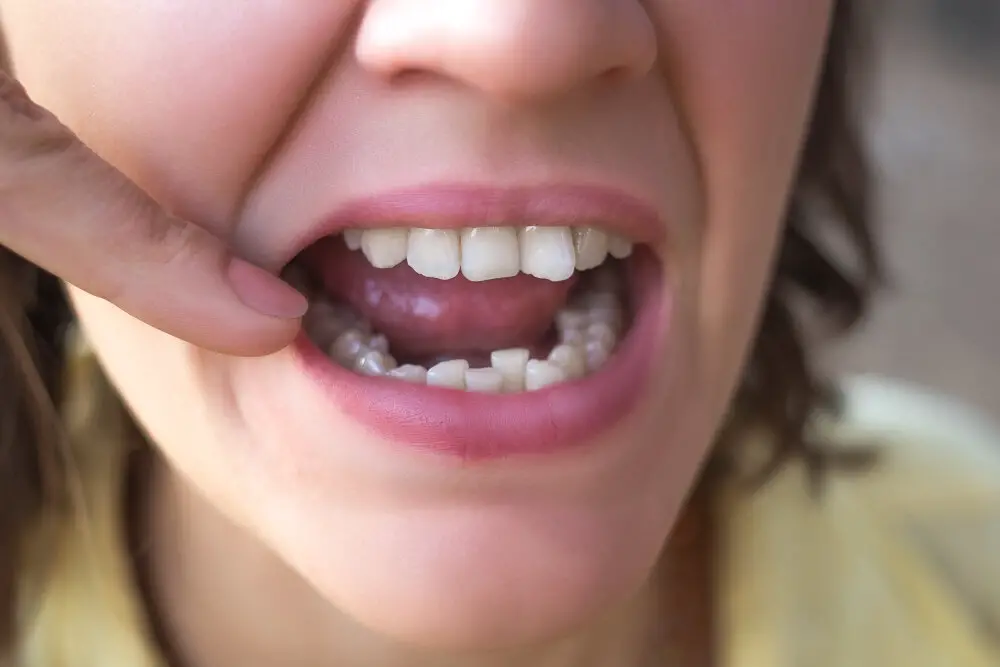
In conclusion, taking care of your oral health after wisdom teeth removal is crucial for a speedy recovery. Brushing your teeth is an essential part of maintaining good oral hygiene, but it’s important to wait until the appropriate time to start brushing again. Following the tips provided, such as using a soft-bristled toothbrush and avoiding the surgical site, can aid in preventing complications and ensuring a successful recovery. Remember to always consult with your dentist or oral surgeon regarding any concerns or questions about your post-operative care. By prioritizing your oral health and taking the necessary precautions, you can have a comfortable and speedy recovery after wisdom teeth removal.



